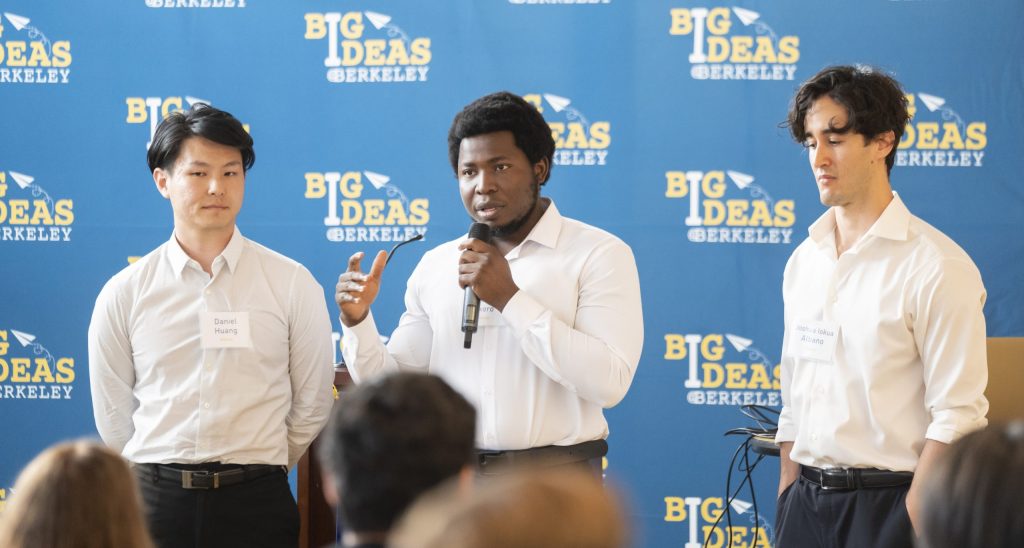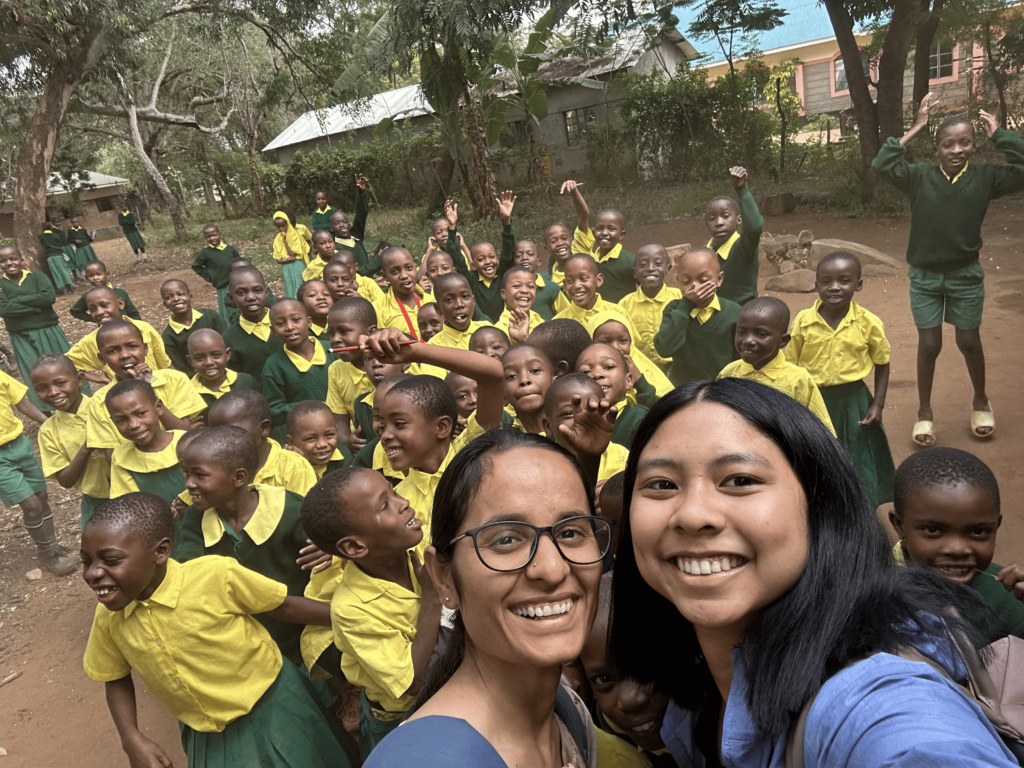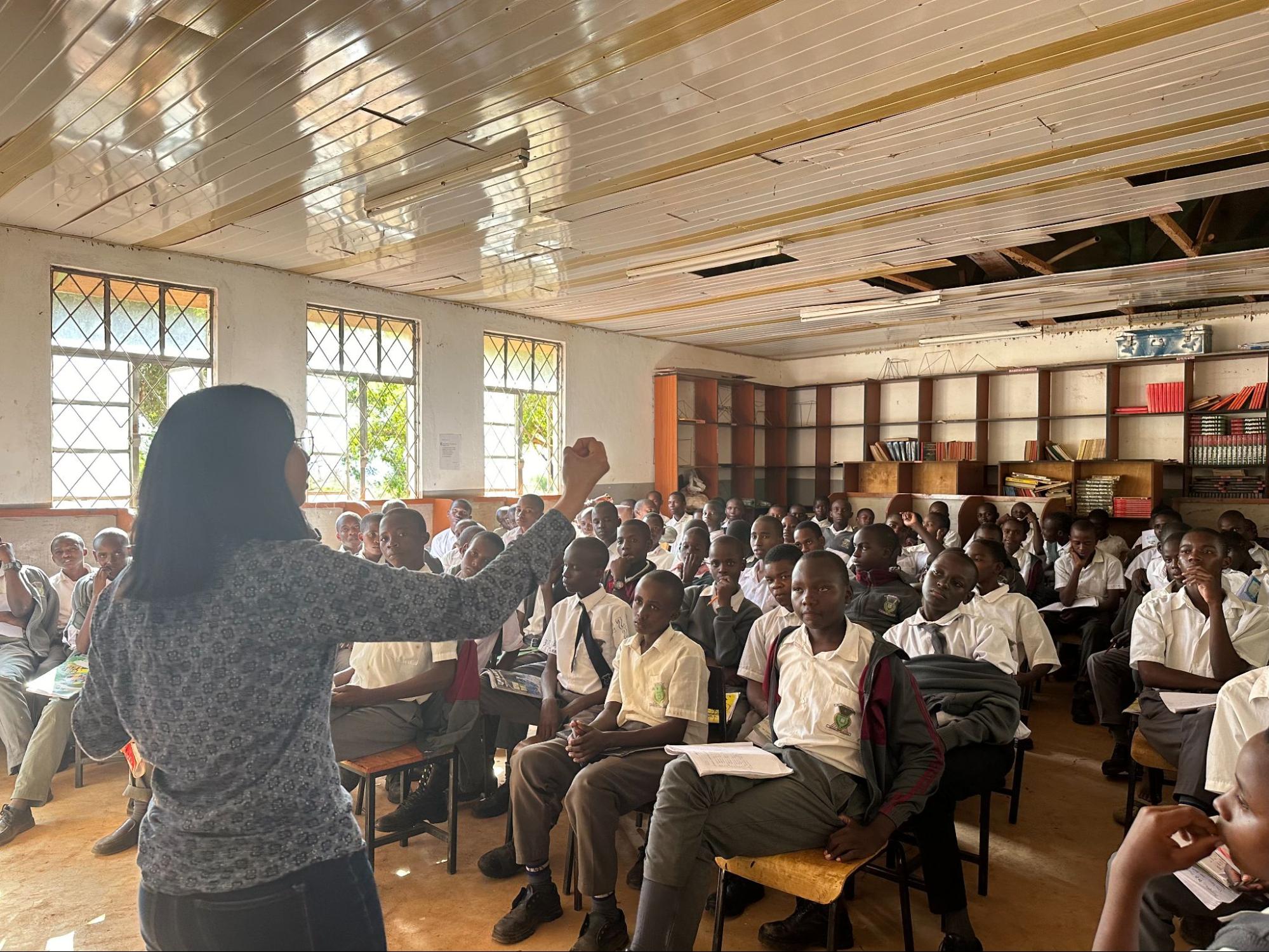Nigeria is home to by far the highest number of startups in Africa, and over the past few years, these startups have received a large amount of venture funding — over $1 billion in 2022 by one estimate. These startups are looking to hire a local workforce, but a stark difference exists between the skills employers look for and the skills Nigerian applicants have when they graduate from universities.
In the fall of 2021, Master of Development Engineering students Victor Okoro, Daniel Huang, and Joshua Iokua Albano, interested in education and helping Nigerians find jobs post-graduation, teamed up to found Madojo, a platform that connects Nigerian university graduates with employers in the technology space while helping the graduates gain sought-after skills through skills development, portfolio design, networking, and mentorship.
The team came to the MDevEng program from different career fields. Okoro, a native of Nigeria, worked in software engineering, and most recently as a technology architect. Huang’s background is in entrepreneurship, product development, and security consultancy. Albano has worked in machine learning and data engineering.
The three channel all this experience into Madojo. Okoro, the team’s executive officer, was born and raised in Nigeria, has a personal understanding of the job market and economy of the country, and serves as the point of contact for Nigerian employers and students. Huang, Madojo’s technology lead, uses his product-development experience to design their curriculum. And coming from an engineering and design background, Albano has taken responsibility for the presentations and reports that Madojo puts out.
Madojo is a “hybrid learning community that connects employers with university students in Nigeria,” Huang says. “The goal is to be able to close the experience gap that students have before starting their first job.” In Nigeria, students have access to experiential learning opportunities such as internships and undergraduate research positions, “but the overall economic structure is not robust enough to support them extensively, ” Okoro says. There is a need to democratize skills such as coding and writing computer programs because only a small percentage of university students follow through and learn these skills before entering the workforce.
At the end of 2021, the Madojo team decided to apply to the Big Ideas Contest to move their idea forward. The competition provided critical structure, accountability, mentorship, and feedback. Albano found the process of pitching their project to be most beneficial because it taught the team how to “convince others that do not have the context or background [the team has] that this problem needs to be solved.”
They were able to do just that. In the spring of 2022, judges awarded Madojo the first-ever Binance Charity–LIFT Initiative Award. The LIFT FinTech for Social Good Initiative, a parallel contest to Big Ideas’ flagship competition, seeks to support students working on financial technology ideas to advance social change by unlocking the potential of these digital technologies to benefit underserved populations around the world—the very goal of Berkeley’s Lab for Inclusive FinTech (LIFT), which focuses on research, experiential learning, and community building. “What better way to do this than by organizing a contest in which we focus specifically on financial technologies or blockchain solutions that are able to make an impact on people’s lives,” says Laura Chioda, the director of research at LIFT and the Institute for Business and Social Impact at the Haas School of Business. The FinTech for Social Good Initiative is made possible by the generosity of Binance Charity and Ripple Impact.
Madojo “provides students professional experiences in a setting that allows them to get feedback in terms of the professional skills, technical skills, collaboration skills,” Huang says. “This format will also serve as a recruiting platform for employers.” To this end, Madojo’s curriculum has two main topics of emphasis: technical skills and professional development. Students learn technical skills through case challenges based on local Nigerian problems that teach students how to utilize data to solve those problems. These case challenges help students develop “microcredentials,” which allow them to show an in-depth understanding of a particular topic or skill that is relevant to future employment opportunities. In this way, the platform streamlines the recruiting process for employers, who can see these skills, while giving applicants real-world experience. Students also focus on developing professional skills such as how to give elevator pitches, how to write resumes and cover letters, and how to find and apply for jobs. “At the core of what we’re doing is walking the students through how to problem solve,” Okoro says, because this is a large focus of employers in Nigeria.
Although the Madojo team does not yet have a platform available, they are connecting with students all over the country through Google Forms and email. At the end of last year, Madojo ran a pilot program with 15 Nigerian students, who were enrolled in a 10-week, microcredentialing course that the team designed to gauge their interest in the program and see if the program benefits them. The team sees Madojo as a community and hopes members will utilize its curriculum to become career self-starters. “We’re only successful if [students] are able to take away all the skills, networks, and connections” that they are offered, Huang says.
In the future, the team hopes to digitize the program, drawing inspiration from Nigerian career portal Jobberman and Kaggle, an online community of data scientists. They want to create a platform “where students can upskill, verify the skills they have, and upload those skills to their portfolio,” Albano says. This would allow students to have one webpage where they can display their resumes, portfolios, and other products or code they have written.
The name “Madojo” comes from combining the word for “community” in the three main Nigerian languages, Hausa, Yoruba, and Igbo. To the team, which graduated from the MDevEng program in December, “the most important thing is building a community of learning and a community of opportunities,” Okoro says. As with many promising technologies, Madojo’s users will also put it to use for a more diverse array of purposes than the founders imagined, from addressing climate change to working with youth to even owning a dance company to put on performances for the community.
“They are really community focused,” Okoro says. “They are looking to give back to their communities with the opportunities and resources to do so.”




